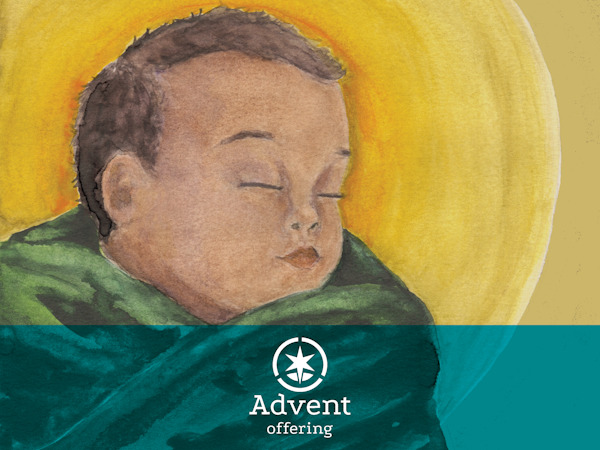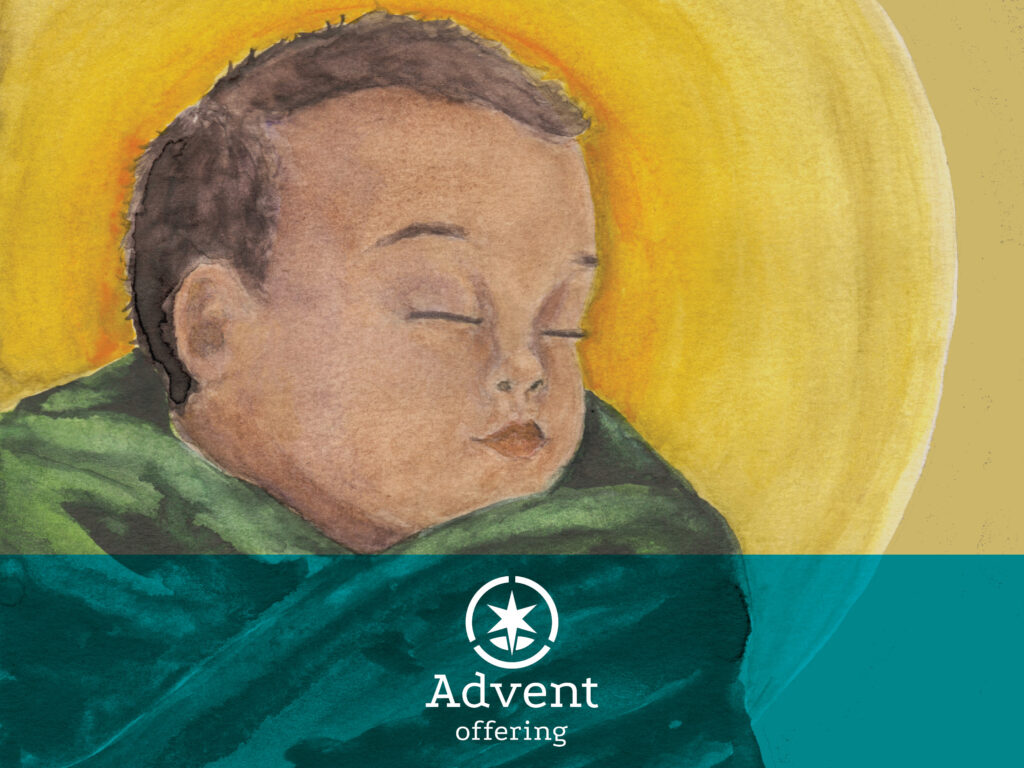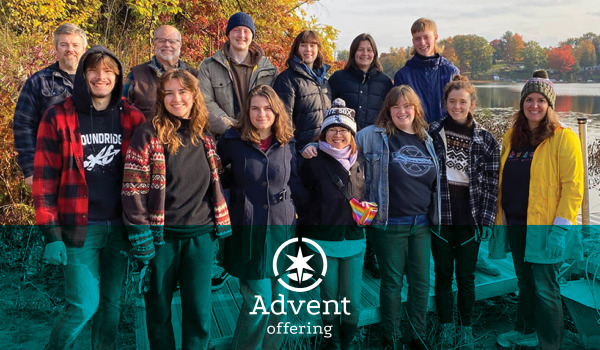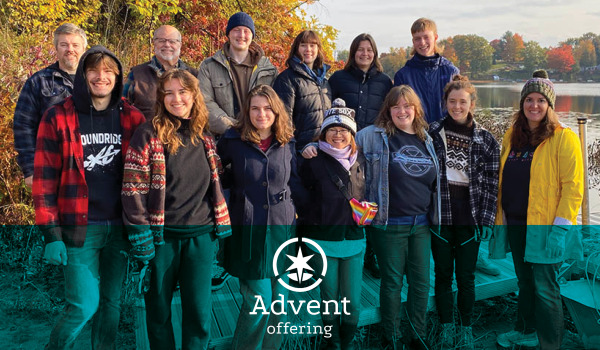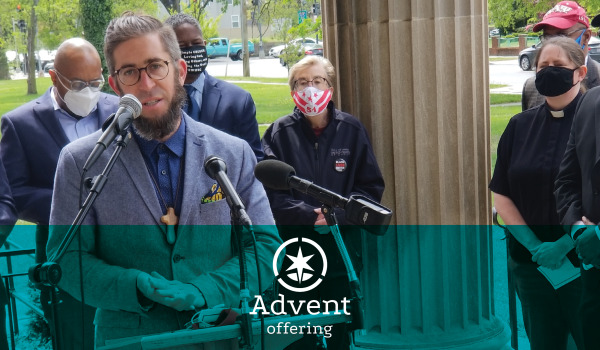
A scriptural exegesis of Isaiah 12 written by Emmett Witkovsky-Eldred, youth and young adult ministry assistant, for the 2018 Advent Offering
We’ve all been told “patience is a virtue.” And we’ve all heard that “good things come to those who wait.” Waiting isn’t always pleasant, but we often regard waiting as the price we pay for some ultimate payoff. We wait those excruciating 90 minutes in line at the amusement park for those magical sixty seconds on the rollercoaster. We wait those exhausting nine months to meet the newest member of our family. It’s easy to find joy in the things that are “worth the wait.” It’s much harder to savor the wait itself, to find joy in the very act of anticipation.
Isaiah spoke to a people in waiting. His prophetic ministry spanned an age of anticipation, transition, and anxiety for the people of Judah. He came into ministry during shallow prosperity—speaking above the noise of false peace and security to expose the deeper rot of corruption and injustice beneath the surface and a looming foreign threat beyond the horizon. The bubble was about to burst. Isaiah bore witness to the gathering cloud of the Assyrian empire’s raiding army—once distant, now on the doorstep, now ransacking the kitchen and rifling through the drawers. At last, the book of Isaiah tells the story of Babylon’s deliverance of the Judeans from Assyria. But trusting in political deliverance only gave way to new subjugation and oppression. The people of Judah were left to wonder who will deliver us from Babylon? They waited.
Waiting can be unbearable enough when we know that what comes next is worth waiting for. It’s much harder still when the future is uncertain: Waiting for the Hail Mary pass to come down, the lost dog to come home, the medical test to come in. This was the sort of wait that plagued Judah. How are we to know that deliverance will every truly come? When it does come, how are we to know if it’s truly better than what came before?
It’s not difficult to see how seeds of bitterness and fear can be scattered, especially when we’re powerless and afraid, and we have nothing to do but wait. But Isaiah invites those who wait to respond with the hymn of thanksgiving and praise found in Chapter 12. It’s not just a litany of what to say when deliverance finally comes. It’s a liturgy for how to wait for God: with joy, with faith, and with praise.
Isaiah’s poem recalls the resplendent joy that God’s people have experienced in the past when God comes through for them. Isaiah 12:2 quotes from the hymn that Moses and the Israelites sang after crossing the Red Sea, “The Lord God is my strength and my might, and he has become my salvation” (Exodus 15:2, NRSV), a verse that echoes again in Psalms 118:14, a song of victory. The imperatives in Isaiah 12:4 recall psalms of promise (Psalm 105:1), wonder (Psalm 148:13), and above all praise. These are songs that echo across scripture and that resound in our hearts. We shouldn’t just sing them anew when the next glorious day arrives. They never faded away; we can—we should—sing them while we wait.
If only it were that easy. While Isaiah directly quoted the soaring praise found in the beginning of Exodus 15, the end of that chapter describes how we really tend to relate to God. No sooner have the sounds of the Israelites’ praise and thanksgiving faded when their grumbling and complaining sets in (Exodus 15:22-27). Facing exile in the desert, their trust in God waned. Their gratitude for God’s deliverance subsided to anxiety about what would lie ahead.
Isaiah sang of a better way to live with God. His hymn admonishes us to joyfully “draw water from the wells of salvation” (12:3) to beat back the scorching fear found in the desert. Centuries later, Jesus employed the same metaphor while speaking to the Samaritan woman at the well of Jacob (John 4: 1-42). He offers life-giving water that forever quenches our thirst and never runs dry. He doesn’t deliver us only to subjugate us. He delivers us to set us free.
We may not be under the thumb of Assyria or Babylon. We may not be wandering in the desert. But we face the same temptation to turn to temporary solutions that will crumble beneath our feet. We have that same urge to drink of worldly water that will only leave us thirsty again (John 4:13). We think that the next election, the next fad product, the next airstrike or sanction, the next stock market boom will scratch the itch, though it never does. We’re waiting for God, and we’re getting antsy.
Isaiah reminds us that we won’t be waiting forever. We will be awake once again to God in our midst (Isaiah 12:6). And in that day, we will “give thanks to the Lord, call on his name; make known his deeds among the nations; proclaim that his name is exalted” (Isaiah 12:4). Better to sing joyfully now than to be rusty, out of practice, and out of pitch when the wait is finally over.
Learn more and find worship resources for this year’s Advent Offering at www.brethren.org/adventoffering.
(Read this issue of eBrethren.)
